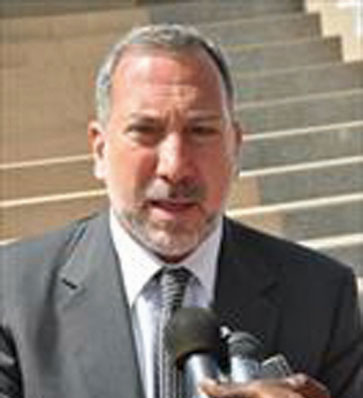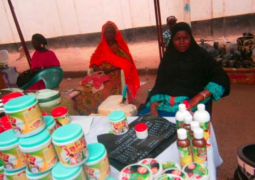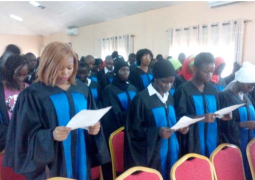
The International Monetary Fund, IMF, on Friday said that it has welcomed the lifting of the restrictions imposed by the recent directives from the Office of the President on the exchange rate and shipment of US dollars.
According to the IMF mission led by David Dunn, the directive had led to some disruptions in the foreign exchange market, and created uncertainty about the country’s exchange rate policy.
“The mission welcomes the recent lifting of the restrictions imposed by the directive and the renewed commitment to a flexible, market-determined exchange rate policy, which has helped the foreign exchange market to largely return to normal conditions,” it said.
The IMF mission visited The Gambia from December 3-7, 2012 to access the impact of the recent directives on exchange rate policy and operations of the foreign exchange market.
It held a press conference at the Ministry of Finance and Economic Affairs in
Mr Dunn told reporters that “full confidence will return to market only as the Central Bank of the Gambia (CBG), which is responsible for exchange rate policy, continues to implement this policy framework. At the same time, it will be important that the CBG resume its gradual accumulation of international reserves, which is key to maintaining economic stability.”
Mr Duun said that to help strengthen and further develop the foreign exchange market, IMF stands ready to provide technical assistance to the country.
In his statement, Mr Duun also said that the economic activity in The Gambia has picked up in recent months with the beginning of harvest and tourism seasons.
“Based on the preliminary indicators, crop production is expected to increase by roughly 20-30 percent this year, while tourism continues to expand at a strong pace,” he said.
However, he stated that although the increase in crop production is weaker than was previously estimated, owing to damage caused by prolonged heavy rains, he added that the harvest marks a solid initial rebound from last year’s severe crop failure.
The IMF mission further estimated that economic growth in The Gambia could reach about 2-3 percent in 2012, rising to 8-9 percent in 2013 as the agricultural sector recovers further.
These estimates will be revisited in the coming months, with a broader analysis of economic developments, the mission added.
“Inflation is projected to remain relatively modest at around 5 percent (year-on-year),” he said.
Mr. Dunn added that the mission welcomed continuing progress in gradually reducing government borrowing needs.
“The 2013 budget submitted to the National Assembly would reduce new domestic borrowing to about 1 percent of GDP next year, which is expected to ease pressure on the interest rate and eventually generate fiscal savings,” the IMF head of mission also stated.
He underscored that the imminent introduction of the new VAT in January 2013 is a key step toward modernizing the country’s tax system, and rebuilding the revenue base.
Mr. Dunn said that in the banking sector, the upcoming increase in the minimum capital requirement will enhance stability, and the mission commended the CBG for managing this important measure in a transparent manner.
“The mission looks forward to continued good progress by the Gambian authorities on implementing a sound macroeconomic policy framework, which will facilitate concluding discussions under the first review of The Gambia’s arrangement under the IMF Extended Credit Facility,” Mr. Duun announced.



